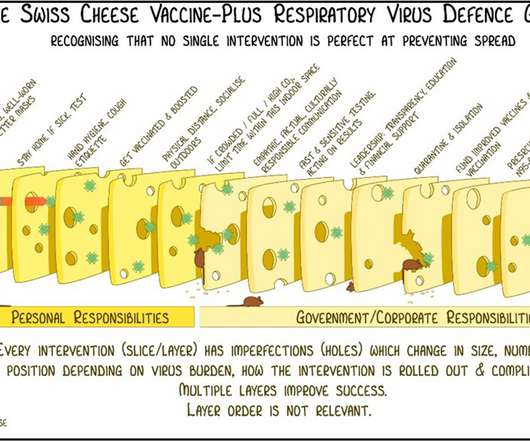Pre-procedure and pre-admission COVID-19 testing no longer recommended for asymptomatic patients
Medical Xpress
DECEMBER 21, 2022
Health care facilities should no longer routinely screen symptom-free patients for COVID-19 upon admission or before procedures and rely instead on enhanced layers of infection prevention interventions, according to a recommendation from the Society for Healthcare Epidemiology of America (SHEA) published today in Infection Control & Hospital Epidemiology. (..)












Let's personalize your content